October, 06 2021 ( Updated April, 25 2024)
Do you dream of writing in one of Rome’s famous cafés or doing a conference call from a terrace in Tuscany?
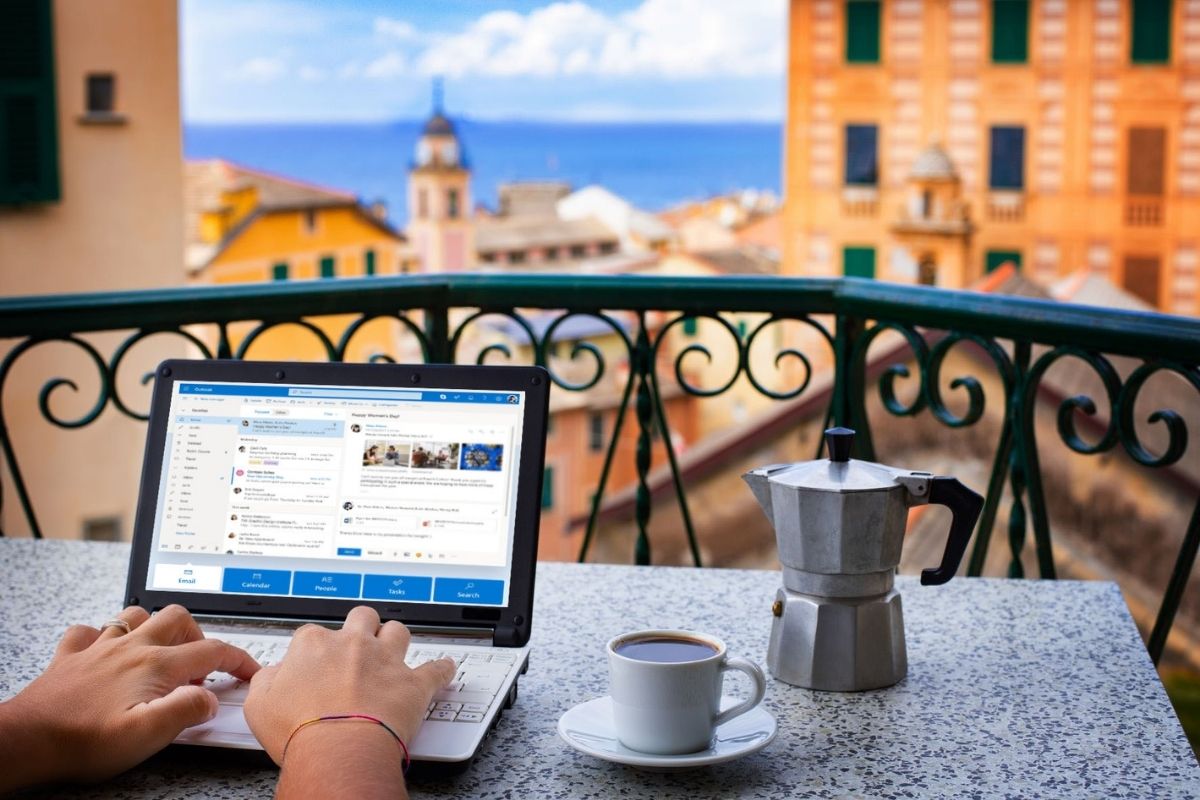 Beautiful settings for smart working
Beautiful settings for smart working
If you are looking to change your lifestyle, whether it is a temporary break from your usual 9-to-5 office job or a permanent move to working-while-travelling life, the post-Covid remote work culture has opened-up the world for digital nomads like never before. Several European countries like Croatia and Malta have welcomed digital nomads, with rental hosts creating more work-friendly holiday homes.
Most recently, Italy has rolled out the much-awaited Digital Nomad Visa for those who have always dreamt of living and working in this bucket-list country. The new visa changes have made digital nomadism for non-EU citizens a bit easier and more accessible. So, if you want to give the nomadic lifestyle a try, read on and discover everything you need to know about Italy’s Digital Nomad visa and more!
As the heart of the dynamic Roman Empire and the cradle of the Renaissance, Italy has always welcomed modernity and new ideas. So, it comes as no surprise that Italy is introducing their new Digital Nomad visa before many other European countries.
Italy's allure lies in its rich history, vibrant culture, mouth-watering cuisine, sense of style and stunning architecture.
Plus, the benefits of choosing Italy are many:
Climate: Enjoy the variety of climate from the snowy northern Alps to the warm beaches of Puglia and Sicily. Italy packs in a lot in a relatively small area.
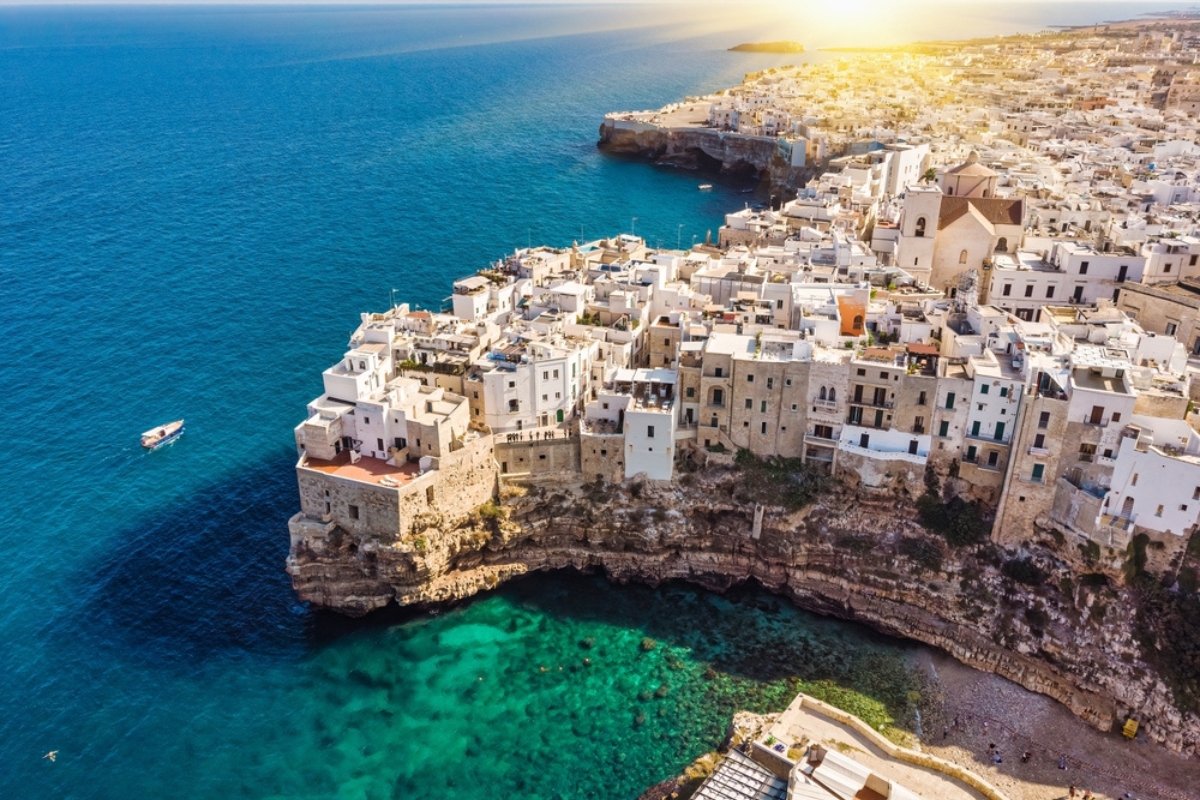 Go straight to the beach after a workday in Polignano a Mare
Go straight to the beach after a workday in Polignano a Mare
Good Transport Links: Extensive road, ferry and rail networks across Italy make it easy to get around. The railways are relatively cheap and offer an excellent service. Ferries between the mainland and Sardinia or Greece and Albania make travelling further afield a pleasurable experience.
Affordable Living: Italy offers a wide range of rental options. Some areas are more affordable than others, but there is always plenty of choice, whether you want to ski in Sestriere or chill on the Costa Smeralda.
 Italy has several skiing options, Sestriere, one of the highest ski resort in Via Lattea, is among them
Italy has several skiing options, Sestriere, one of the highest ski resort in Via Lattea, is among them
Rich Cultural Heritage: With thousands of UNESCO World Heritage Sites (for instance in Sicily’s Val di Noto and Tuscany’s medieval villages), Italy offers unparalleled cultural experiences. The country’s art galleries and museums, churches and palaces nourish the most well-travelled Digital Nomad’s soul.
Health & Safety: Italy’s state-run health system is excellent. Hospitals are generally clean and well-organised. It is a safe environment, with a highly visible police presence in many of the larger cities.
Scenic Diversity: From picturesque coastlines of Cinque Terre to majestic lakes and volcanic terrains of Campania, Italy offers a diverse tapestry of landscapes, catering to every nomad's wanderlust.
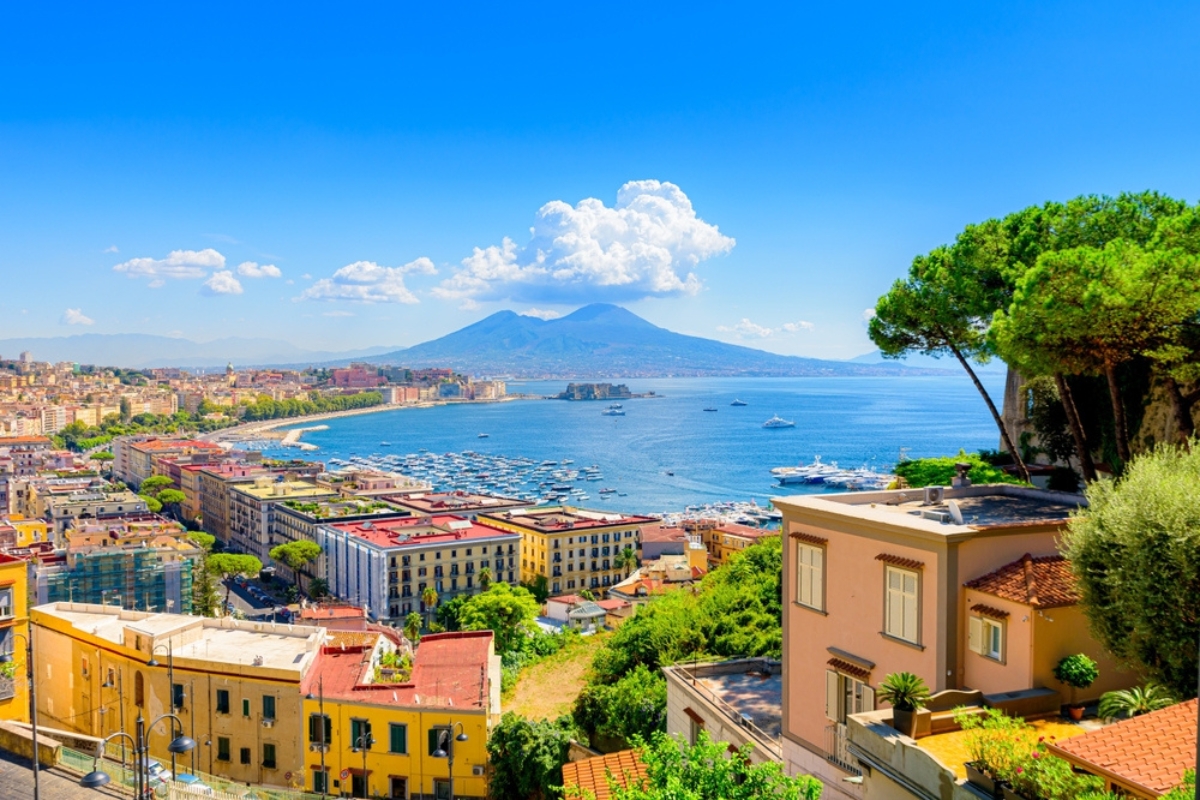 Imagine waking up with this view on the gulf of Naples!
Imagine waking up with this view on the gulf of Naples!
EU citizens can live and work in Italy without a special permit. However, their tax and social security obligations can vary depending on factors such as employment status, duration of stay and employer location. Regulations may change, so it's essential to consult official sources like the Italian Ministry of Foreign Affairs or local consulates for the latest information.
Non-EU citizens must apply for a Schengen Visa and follow the Schengen Visa rules. This means that they can only legally stay in Italy for a maximum of 90 out of every 180 days per year.
If you are planning to stay in Italy longer, you will need a different visa – either the Digital-Nomad Visa or Self-Employed Visa.
Exciting news for remote workers eyeing Italy as their next destination: the Italian Government has officially approved a Digital Nomad Visa on 4th April 2024. This visa aims to allow non-EU Digital Nomads to work whilst living in Italy.
The Digital Nomad Visa targets remote workers and freelancers operating outside the EU. It's tailored for individuals engaged in "highly qualified work activities through the use of technological tools," allowing them to work remotely, independently, or for companies outside Italy.
To qualify for an Italian Digital Nomad Visa, applicants must meet specific criteria listed below. Applicants generally need to book an in-person appointment at the local embassy or consulate.
Book ahead, as some consulates have a 2 to 4 month waiting list. Some Italian consulates accept an application by mail, but you will need to sign the documents in front of a Notary Public, or similar depending on your country.
1. Passport Validity: Ensure your passport remains valid throughout the visa period.
2. Nationality: Only non-EU or non-EEA nationals are eligible.
3. €28,000 Minimum Income: This income does not have to be 100% generated from work done in Italy. It can also include rental income from overseas or investment income.
4. Health Insurance: Provide proof of health insurance of €30,000 covering at least the initial 1st year in Italy. Coverage should be across the EU.
5. Clean Criminal Record: Furnish a certified clean criminal record from your home country.
6. Qualification as a “highly skilled worker”: The Italian government defines “highly skilled” as university graduates or workers with at least 5 years of professional experience.
7. Complete the On-Line application form: Once you have checked that all the information is correct, do NOT sign the form. This will need to be done in person, in front of an Italian Consular officer.
It appears that Italy's Digital Nomad Visa will solely accommodate individuals employed remotely by companies outside Italy. Self-employed professionals and freelancers already have the option to apply for the Self-employed visa in Italy.
Working remotely from Italy offers an enriching experience, with excellent infrastructure, a vibrant work-life balance, and a delightful Mediterranean climate. The visa also means that Digital Nomads can spend the entire length of their visa in Italy without having to leave Italy and the Schengen Area after 90 days.
 Buy and cook some freshly made “orecchiette” in the Bari’s markets
Buy and cook some freshly made “orecchiette” in the Bari’s markets
The south-eastern region of Puglia (Apulia) offers a relatively low cost of living, but in beautiful surroundings. Puglia has good weather and a wide range of rental properties where you can laze by the pool or soak up authentic village life. When the day’s work is done, Digital Nomads can explore hidden beaches, bathe in crystal-clear sea, gorge on Pugliano cuisine and sip delicious white wines. Puglia is ideal for nomads who enjoy the simpler yet rich things in life. It also has great international connections, as ports like Bari and Brindisi have ferries to Croatia, Greece and Albania.
Tip: Here is our full guide to eating, drinking and discovering the Apulian region.
 Don’t miss the chance to visit the stunning Villa Monastero while staying on Lake Como
Don’t miss the chance to visit the stunning Villa Monastero while staying on Lake Como
With fast internet, opulent villas, beautiful public gardens and a picturesque setting this is the perfect place to start your Digital Nomad journey. In addition to being a highly popular tourist destination, Lake Como also has several friendly co-working places like, Wip and COWO ,which are perfect for working and meeting locals. The excellent transport links on land and on the water make travelling around Como and the other lakes (even the Swiss-Italian Lake Lugano) in the region a breeze.
From lakeshore to mountain-top rentals, you will find our diverse range of accommodations perfect for a Digital Nomadic lifestyle here.
Editor’s Tip: Here is our go-to garden and villa itinerary on Lake Como.
 Surfing on Lake Garda is one of the pros of being a digital nomad in Riva del Garda!
Surfing on Lake Garda is one of the pros of being a digital nomad in Riva del Garda!
Just 30 minutes from the majestic Lake Garda, cities like Verona (which are close to south of the lake) have more than 20 co-working hubs, a large English-speaking population and international amenities. Meanwhile, Trentino (north of Lake Garda) has lower living costs and is surrounded by a beautiful mountain landscape. Wherever you choose living and working around Lake Garda means swimming in clean waters, good Wi-Fi speed and reliable public transport to discover various stunning and uniquely Italian destinations.
Editor’s Tip: If you are the sporty type, head to legendary windsurfing towns such as Riva del Garda and Torbole Sul Garda!
 Florence is one of the most popular bases for Digital Nomads
Florence is one of the most popular bases for Digital Nomads
One of the most beautiful cities in the world, Florence has so much to offer, including trendy co-working spaces, Wi-Fi speed, glorious museums and galleries celebrating the city’s rich history. It is an ideal base for Digital Nomads who want to learn more about the Renaissance and fine art. This cultural hub is also great for those who want to explore the rolling Tuscan hills and countryside from a big-city base. Nomads can take road trips to Chianti for exclusive wine-tasting tours or jump on a train to Pisa to see the famous Leaning Tower.
Editor’s Tip: Some of the best co-working spaces for those who like to meet and interact with locals while travelling are Multiverso and Impact Hub.
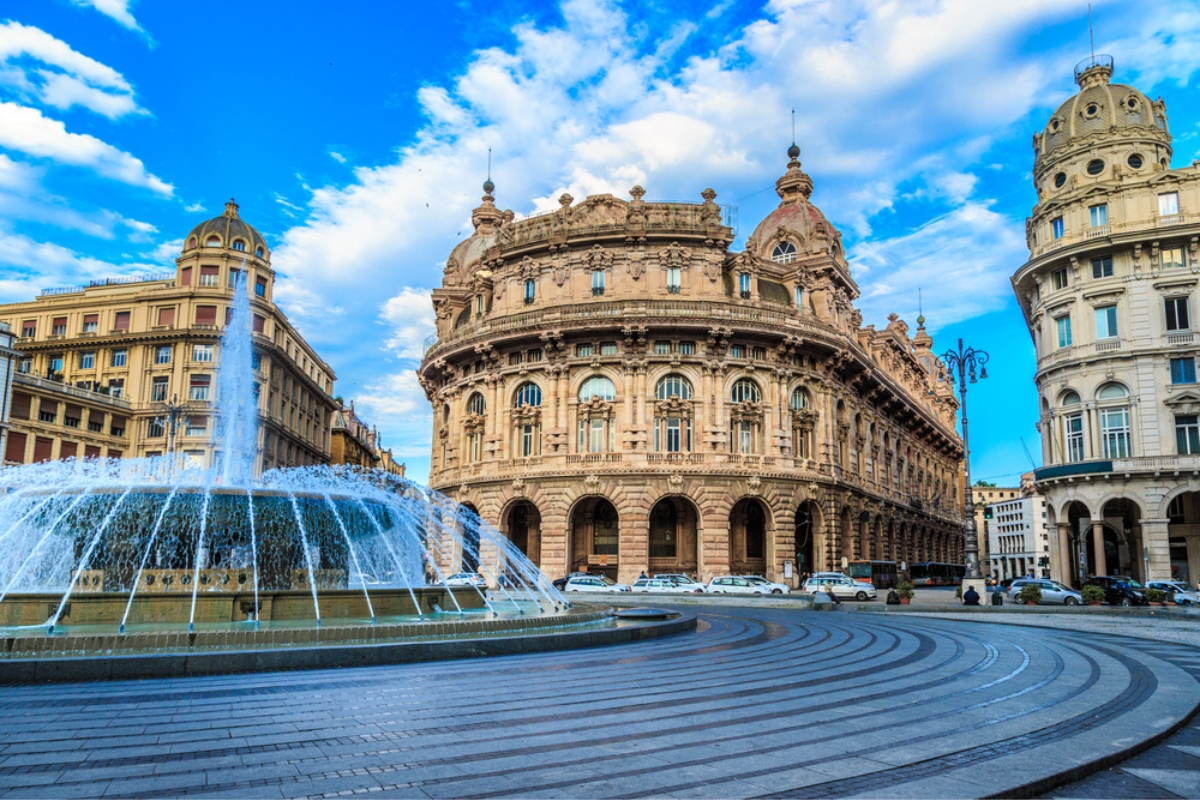 Maybe underrated, Genova has lots of hidden gems that would make you love it
Maybe underrated, Genova has lots of hidden gems that would make you love it
The Italian Riviera is an enchanting combination of mountains, valleys, beaches and crystal-clear sea. The Ligurian coastline is home to many charming towns like Alassio, Bordighera and the world-famous Cinque Terre which Digital Nomads will love exploring on their journey. In between the “Town of Flowers”, Sanremo, and the coastal regional capital, Genoa, you can base yourself in several beautiful small towns or traditional villages which cling to the cliffs. These have an attractive combination of good internet connection, delicious food and plenty of things to do. AND…you are only an hour’s drive of the glamorous French Riviera!
Taxation for Digital Nomads in Italy is determined by residency status, income sources and international tax treaties. Italian tax residents are taxed on their worldwide income, while non-residents typically pay tax solely on income earned in Italy. Distinctions exist between employment and self-employment income, and leveraging double taxation agreements can be advantageous. Consulting with a tax professional specialising in international taxes is advisable for personal guidance.
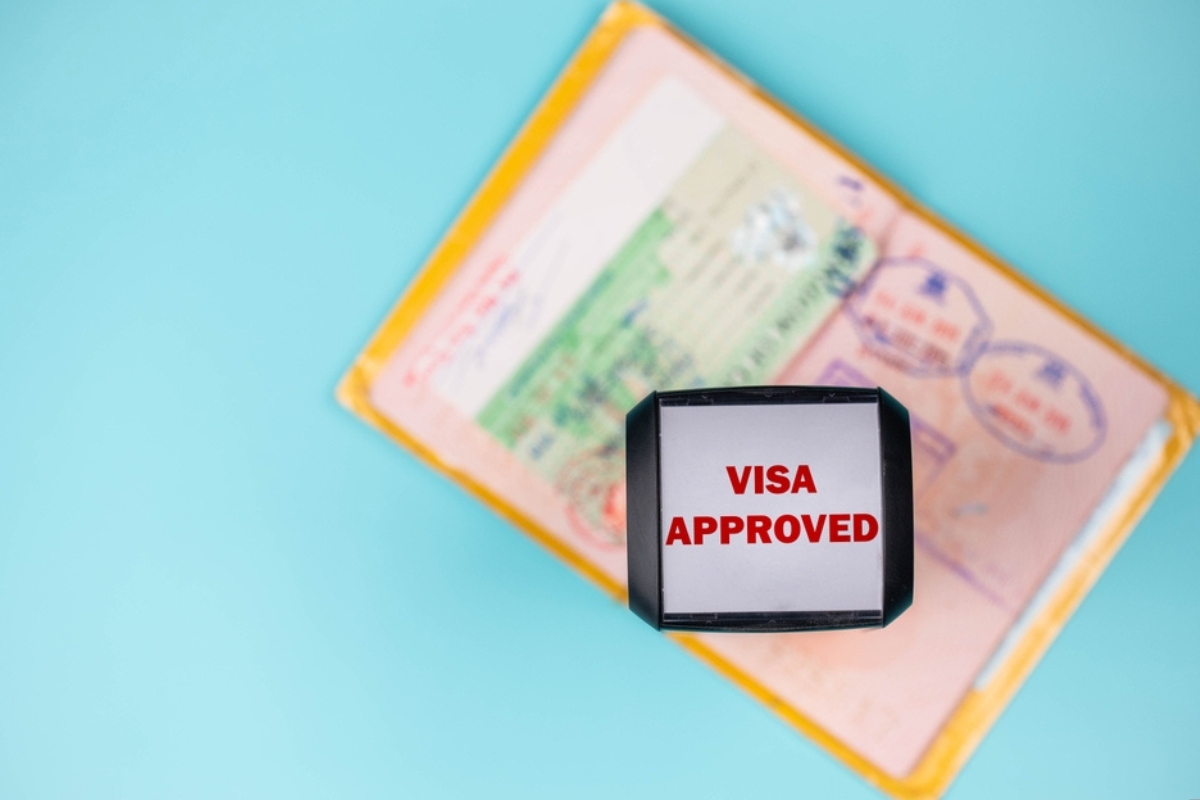 Are you ready to be a digital nomad in Italy?
Are you ready to be a digital nomad in Italy?
Within 8 days of entering Italy with the Digital Nomad Visa, the applicant must submit the request for an Italian Residence Permit – a Permesso di Soggiorno. This needs to be done either at the local town hall or a post office. The Residence Permit will be valid for as long as the already issued DN Visa. Finally, holders of the Digital Nomad Visa are allowed family reunification. Family members are issued a Residence Permit valid for the same duration as the worker's.
A rich cultural heritage; good nation-wide internet speeds; good transport networks; general low cost of living; widely available co-working spaces and a many different landscapes make Italy one of the top destinations for the Digital Nomads.
Ready to try the exciting life of a digital nomad? Our holiday homes might just be the perfect base for you in Italy.
join over 80,000 people who receive our updates